calsfoundation@cals.org
Calvin Clark (1820–1896)
Calvin Clark was a prominent Quaker leader and educator in post–Civil War Arkansas. With his wife, Alida Clark, he founded Southland College in Helena (Phillips County), the first institution of higher education for African Americans west of the Mississippi River.
Calvin Clark was born in Wayne County, Indiana, on July 21, 1820, one of five children born to John Clark and Anna Price Clark. Clark received his early education in the local schools of Wayne and Morgan counties in Indiana. His mother died when he was about twelve; his father, who remarried, died when Clark was fifteen. Clark went to live with his uncle in Monrovia, and after getting additional formal schooling, at age eighteen, he began teaching in Richmond, Indiana. During the summer months, he farmed.
Clark married Alida Clawson in 1844, and they had three children.
In 1864, in response to a request from the Indiana Yearly Meeting’s Freedmen’s Committee, an organization set up to help newly freed slaves, Clark and his wife headed to Arkansas to take over the running of a place known as the Orphans’ Asylum, located in Helena. Under their leadership and direction, the institution, which they operated until 1886, was eventually transformed into Southland College.
Located in Phillips County, Southland College was the embodiment of the wide-ranging efforts by the nation’s Quaker community to help the newly freed African-American community following the Civil War. The Clarks also established the first predominantly black Quaker meeting in North America. By 1880, the Southland Monthly Meeting had approximately 200 members, most of whom were African American.
While the orphanage and fledgling school began operations in Helena, the land upon which the institution was located was taken away. However, an army colonel, Charles Bentzoni, and his regiment, the Fifty-Sixth United States Colored Infantry Regiment, donated sufficient funds to allow the Clarks to secure a new location, and the school was moved to a more rural spot northwest of Helena. Playing to their distinctive talents, the Clarks made an effective leadership team. Calvin held the title of superintendent while Alida was the matron of Southland. In those roles, Calvin, working more behind the scenes, attended to all the school’s business matters, while Alida was the energetic moving spirit who oversaw the daily program. They originally took small salaries for their effort, but over the twenty-two years of their tenure, they frequently refused any salary, while also treating many of the orphans as their own children.
Under the Clarks’ leadership, the school was staffed primarily by local volunteers and funded through donations from Quakers throughout the United States. Its early focus on younger children was soon expanded as adult freedmen sought the education they had been denied as slaves. During Reconstruction, adult-oriented classes developed. By the mid-1870s, Southland became a degree-granting institution and a central training ground for large numbers of African-American teachers who soon populated Arkansas schools. The school, which had only a few dozen students in the early 1870s, increased its enrollment to 200 by 1878. The physical plant experienced a similar growth, and by 1885 the campus included five buildings (all constructed by local African-American volunteers), making it able to accommodate 300 students.
The Clarks’ efforts often met with opposition, as Southland was in the midst of a white community that was resistant to black education and advancement. That opposition, especially after the end of Reconstruction and the transfer of political power to former Confederates, added an additional challenge. By 1886, after more than two decades of dedicated efforts, the Clarks retired, giving up their roles at the college. However, in retiring to a home about two miles from the campus, they continued to have an indirect influence over the school.
Alida died in 1892. Calvin, who had experienced health problems during his years at Southland, moved to Ohio, where he lived with relatives until his death on January 12, 1909. He is believed to be buried in Maple Grove Cemetery in Granville, Ohio.
For additional information:
Biographical and Historical Memoirs of Eastern Arkansas. Chicago: Goodspeed Publishing Co., 1890.
Kennedy, Thomas. A History of Southland College: The Society of Friends and Black Education in Arkansas. Fayetteville: University of Arkansas Press, 2009.
William H. Pruden III
Ravenscroft School
 Civil War through Reconstruction, 1861 through 1874
Civil War through Reconstruction, 1861 through 1874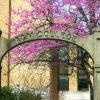 Education, Higher
Education, Higher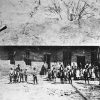 Freedmen's Schools
Freedmen's Schools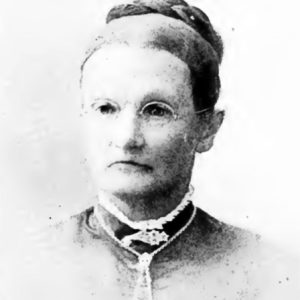 Alida Clawson Clark
Alida Clawson Clark 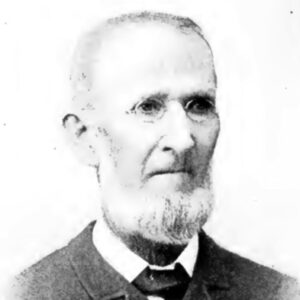 Calvin Clark
Calvin Clark 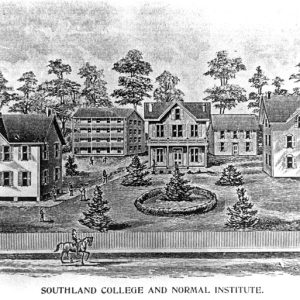 Southland College
Southland College 




Comments
No comments on this entry yet.